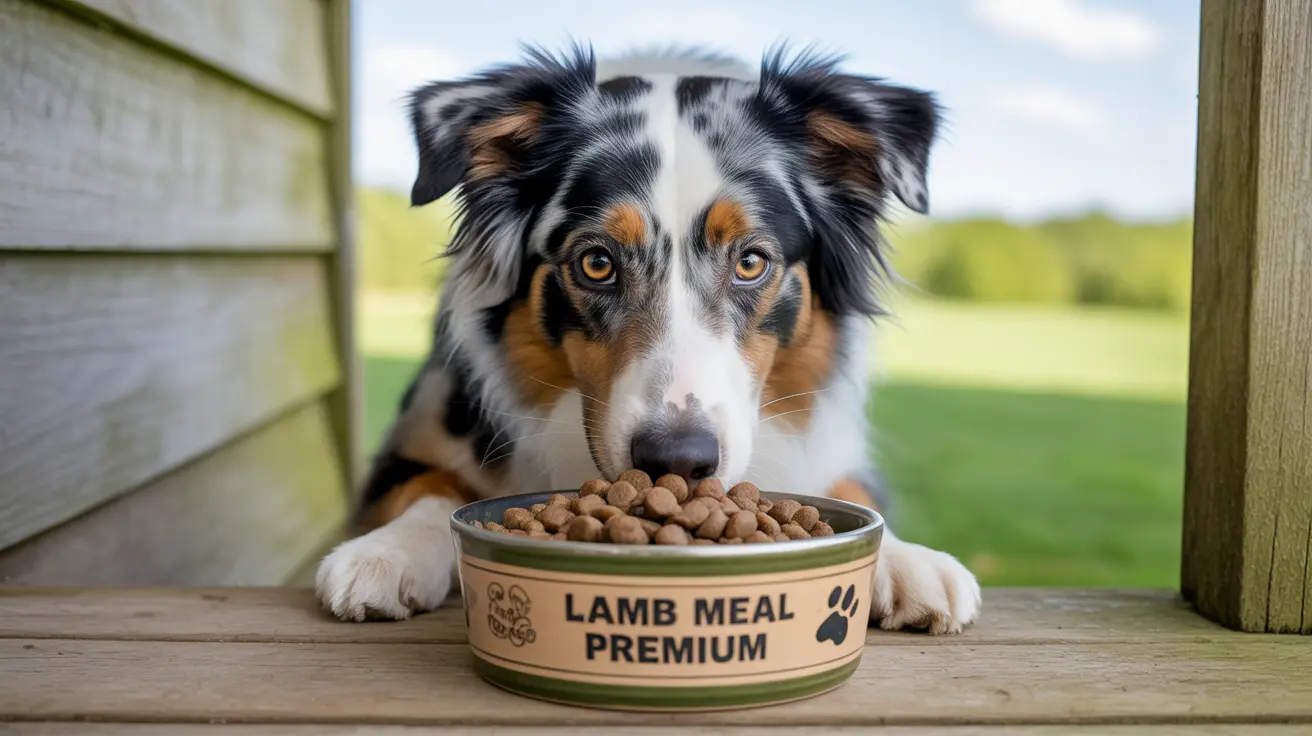What is Lamb Meal and How Is It Made?
Lamb meal is created through a carefully controlled rendering process where fresh lamb meat and tissues are cooked to remove moisture and fat, resulting in a highly concentrated protein powder. This process follows strict guidelines set by the Association of American Feed Control Officials (AAFCO) to ensure consistent quality and nutritional value.
Unlike fresh lamb meat, which contains up to 75% water, lamb meal is significantly more concentrated, allowing pet food manufacturers to pack more protein into each kibble. This concentration process makes it an efficient and cost-effective protein source for dog food formulations.
Nutritional Benefits and Composition
Lamb meal is packed with essential nutrients that support your dog's overall health:
- High-quality protein for muscle maintenance and growth
- Essential amino acids for cellular function
- Rich in B vitamins, particularly B12
- Abundant iron and zinc content
- Healthy omega-3 and omega-6 fatty acids
- Selenium for immune support
- Natural source of vitamin K2
Advantages for Dogs with Food Sensitivities
One of the primary reasons pet owners choose lamb meal-based foods is its potential hypoallergenic properties. As a novel protein source, it often proves beneficial for dogs who show sensitivities to more common proteins like chicken or beef.
While no protein is completely allergy-proof, lamb meal typically causes fewer allergic reactions compared to traditional protein sources, making it an excellent choice for dogs with food sensitivities.
Digestibility and Palatability
Most dogs find lamb meal highly palatable due to its rich, savory flavor profile. The rendering process actually concentrates the natural flavors, making it particularly appealing to picky eaters.
The high digestibility of lamb meal means your dog can efficiently absorb its nutrients, potentially requiring smaller portions while still meeting their nutritional needs.
Quality Considerations and Selection Tips
When choosing a dog food containing lamb meal, consider these factors:
- Look for "lamb meal" specifically listed, not generic "meat meal"
- Check if it's listed among the first few ingredients
- Verify the food meets AAFCO nutritional standards
- Consider the overall ingredient list and formula balance
Frequently Asked Questions
What is lamb meal in dog food and how does it differ from fresh lamb meat?
Lamb meal is a concentrated protein powder made by rendering lamb meat and tissues, removing moisture and fat. Unlike fresh lamb meat which contains about 75% water, lamb meal is much more concentrated, providing more protein per ounce.
Is lamb meal a good protein source for dogs with allergies or sensitivities?
Yes, lamb meal is often recommended for dogs with food sensitivities because it's considered a novel protein source. While not completely hypoallergenic, it typically causes fewer allergic reactions compared to common proteins like chicken or beef.
What are the nutritional benefits of feeding my dog lamb meal?
Lamb meal provides concentrated protein, essential amino acids, B vitamins, iron, zinc, omega fatty acids, and selenium. These nutrients support muscle development, immune function, skin health, and overall vitality.
How does lamb meal compare to other animal protein meals like chicken or beef in dog food?
Lamb meal typically contains higher levels of certain nutrients like omega-3 fatty acids and is often more calorie-dense than chicken or beef meal. It's generally more expensive but may be more suitable for dogs with sensitivities to common proteins.
Can lamb meal help improve my dog's skin, coat, and overall health?
Yes, the high levels of omega fatty acids and essential nutrients in lamb meal can contribute to healthier skin and a shinier coat. Its complete amino acid profile and concentrated nutrients also support overall health and wellness.
Conclusion
Lamb meal stands out as a valuable protein source in dog food, offering concentrated nutrition, potential benefits for sensitive dogs, and excellent palatability. When choosing a dog food containing lamb meal, focus on quality products from reputable manufacturers and consider your dog's specific nutritional needs and sensitivities.
Remember to introduce any new food gradually and monitor your dog's response to ensure it's the right choice for their individual needs.






